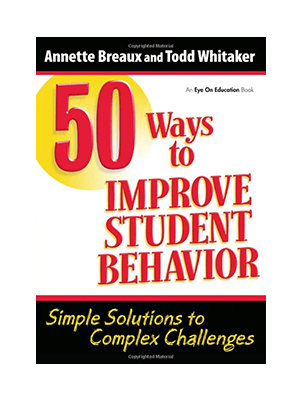Five Tips to Start the Year off Right with Parents
Our students’ families form a crucial link between school and home. We understand the power that comes from working together with parents to support our students as they learn and grow. And we know how hard it is when we do not have that support at home, too. Research confirms that strong parent-teacher connections lead to greater academic success and greater emotional wellbeing for children. This is why it is never too early to start building these key relationships. These strategies can help you foster trust, support, and respect with parents and caregivers now and throughout the year.
1. Early Communication is Key
Our first contact with families should be positive and welcoming – this is why it’s important to reach out early and often. Even though the start of the year is busy, make every effort to communicate with parents during the first weeks of school. Let families know from the start that you appreciate their time and consider them partners in their children’s education. When you build trust and respect with parents early, you build a stronger learning community, and if academic or behavior problems do arise in the future, you are more likely to receive positive support.
In your early communications, try to avoid using educational jargon. Some terms may seem commonplace to you as a teacher but are unfamiliar to new families or people outside the world of teaching. For example, telling parents, “We use Everyday Math…” might be clear to some, but to many people the term everyday math refers to the basic arithmetic we use to tally our grocery bill, not a mathematics curriculum. Too much jargon can make parents feel like outsiders and they may be less likely to ask questions in the future.
2. Choose the Right Tools to Connect
While early communication is key, so too is frequent communication. A monthly newsletter, a new unit introduction, or an occasional email update can help families feel more connected and build positive feelings about the work you do with students. Before you decide which format to use, consider your own strengths. Is e-mail your preferred communication style? Do you enjoy the creativity of a print-based newsletter? Will you have time throughout the year to maintain a classroom website? Try to start the year the way you want to end the year. Think of it this way: You are more likely to keep up with the communication format if it fits your style. One of the simplest ways to engage parents in their child’s education is to send home a weekly or monthly newsletter. It’s the perfect opportunity to share with parents what activities are happening inside the classroom and highlight upcoming events or projects. Bonus: Newsletters are also a great way to unify communication and ensure that everyone is on the same page. It can be especially helpful for multilingual families.
3. Seek Parent Input
Let parents know you value their perspective by asking them more about their students. In the first few weeks of school (or at the start of each new semester), send a parent survey home. Survey questions can include student profile questions, such as, “What activities does your child enjoy?” “How would you describe your child as a learner?” or “What would you like me to know about your student?” It can also include questions regarding communication preferences, such as “What is your preferred communication: email, phone, or text?” or “What is the best time of the day to reach you?”
This information can help you get to know each student as a person and learner. It’s also useful when planning lessons. Even though parents are just as busy as teachers, most are eager to share information about their child (this is true even for parents of high school students)! Seeking the advice of parents shows respect and helps gain and sustain their support.
4. Encourage Student Involvement
Another way to build connections between home and school is through student letter-writing. Ask students to create a “parent/ home” section in their notebooks or binders. At least once a month, have students write a short note to their parent or caregiver. Ask students to describe a favorite assignment, share an achievement, or reflect on a problem or challenge they overcame. Encourage parents to respond to their student’s letters if or when they have time (you can also add a note home in different student’s notebooks each month to help you stay on top of your communication goals).
5. Be Proactive When You See Concerns
If you notice academic problems or negative behavior patterns, contact parents as soon as possible. You’ll have a better chance to change these patterns with parents’ support if you address them early. Remember the importance of discussing the whole child – the student’s social, emotional, and academic wellness. For example, parents may feel anxious or upset to learn their son struggles with a particular academic skill, but it may feel less overwhelming to learn he is able to work well with peers and stay on-task during class. The topics below can be helpful when calling home to discuss concerns.
|
Quick Tips for Successful Parent Phone Calls |
When calling home to discuss a concern, consider these suggestions:
|

























